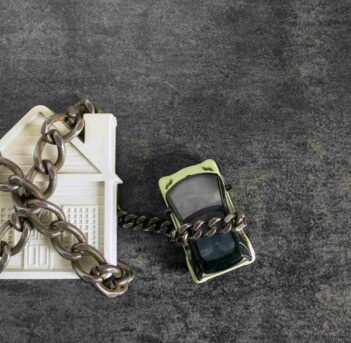
Serving People Throughout Colorado
Call Us For Free Consultation:
If you’ve had your property seized by the police in Colorado, you may be feeling overwhelmed, frustrated, and unsure about the next steps. Rest assured, you’re not alone. Many residents face similar situations every year and seek guidance from a trusted Denver criminal defense lawyer.
At the Law Offices of Steven J. Pisani, we are here to help you understand your legal rights and options regarding seized property. You can contact our office for an appointment or learn more here.
Before diving into the retrieval process, it’s crucial to understand the circumstances under which the police can seize your property:
Evidence in a crime refers to items or information used to prove a legal assertion in a criminal proceeding. This can encompass tangible objects, such as weapons, drugs, or stolen goods, and intangible evidence, like witness testimonies or electronic data.
It is collected to establish a connection to the alleged crime, supporting the prosecution’s claims or the defense’s counterarguments. Proper handling, storage, and presentation of this evidence are crucial for maintaining its integrity in a court of law.
Forfeiture is a legal process where individuals lose their rights to property because it’s believed to be connected to criminal activity. This might occur even if the owner isn’t charged with a crime. For instance, assets acquired from illegal activities, like drug trafficking or fraud, can be seized by authorities.
The aim is to disrupt criminal enterprises by depriving them of the proceeds and tools of their illicit trade. To reclaim forfeited property, owners often have to prove it was acquired legally, which can be a complex process necessitating legal expertise.
Whenever the police seize property, they should provide a receipt detailing:
This refers to a detailed account of the specific items that were confiscated by the authorities. The description typically includes attributes like the color, size, brand, model, or any other distinguishing features of the items. A clear and precise description ensures no ambiguity regarding which belongings were taken into custody.
This outlines the grounds or justification for why the authorities took the items. It may state whether the items were suspected of being connected to a crime, considered evidence, or deemed assets obtained illegally, amongst other reasons.
This information identifies the specific law enforcement officer responsible for the seizure. The officer’s name provides a personal reference, while the badge number offers an official, unique identifier. Together, they ensure accountability and a point of contact for any follow-up actions or inquiries.
The case number is a unique identifier assigned to a specific legal or investigative case. It acts as a reference, making it easier to track and locate all information related to that particular case within the justice or police system. This number is crucial for individuals seeking more information or wanting to retrieve their property, as it offers a quick way to pinpoint the specifics of their situation.
Ensure you keep this receipt safe, as it’s your primary proof of the property seizure.
The laws surrounding seized property can be complex. To navigate them efficiently:
This implies seeking advice or representation from an attorney in Denver specializing in criminal defense. These lawyers have comprehensive knowledge of the local legal landscape, nuances of criminal law, and expertise in defending clients’ rights. Consulting with such an expert ensures that individuals are well-informed and represented, particularly in cases that involve interactions with the criminal justice system.
The attorney can help you understand your rights and the best way to retrieve your property.
How you retrieve your property depends on why and how it was seized.
Before taking steps to retrieve your property, it’s essential to understand the type of seizure. Seizures generally fall into two primary categories: evidence in a crime or forfeiture due to suspected criminal activity.
When items are taken as potential evidence, they serve as pieces of a puzzle in a criminal investigation. This could range from electronic devices holding data to weapons or clothing. In such instances, the property is held until a case or investigation concludes.
These are more complex. Here, properties believed to be linked to illegal activities can be seized, even if the owner is not necessarily charged with a crime. Assets that are the proceeds of crime or instrumentalities used in committing a crime fall under this category.
Once you identify the nature of the seizure, it sets the stage for subsequent actions. Patience might be the key to evidence-based seizures as you await case resolution. For forfeiture-based ones, legal intervention, guided by a Denver criminal defense lawyer, may be imperative to challenge the seizure and reclaim your property.
If your property isn’t automatically returned after a case resolution:
You must prepare a motion requesting to have your property returned. Your attorney can help you with this. Make sure you are specific about the property that was seized and provide any evidence that you are the true owner.
After the motion is filed, a hearing date will be scheduled. You and your attorney will attend this. They can advocate for you and help you fight to have your property returned.
While having your property seized can be distressing, understanding your rights and the retrieval process can make a difference.
Partnering with a Denver criminal defense lawyer can further ensure that you navigate the complexities of Colorado’s legal system efficiently and increase the likelihood of getting your property back.
If you or someone you know is struggling with seized property issues in Colorado, don’t hesitate to contact the Law Offices of Steven J. Pisani for professional guidance and assistance. We’re here to help!
